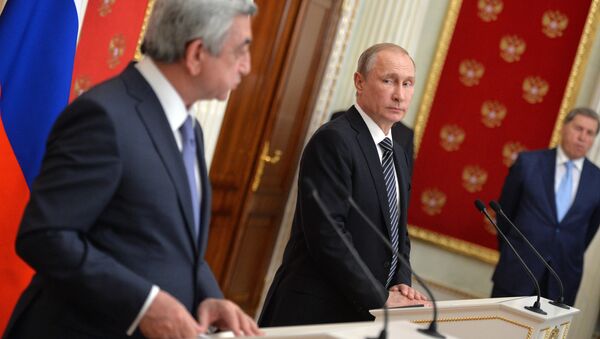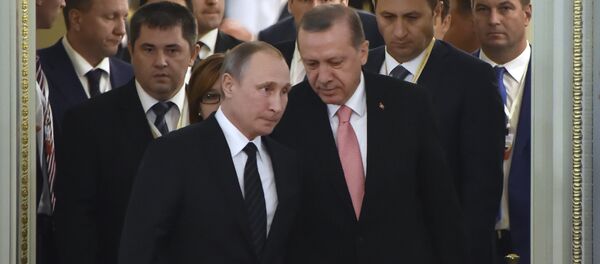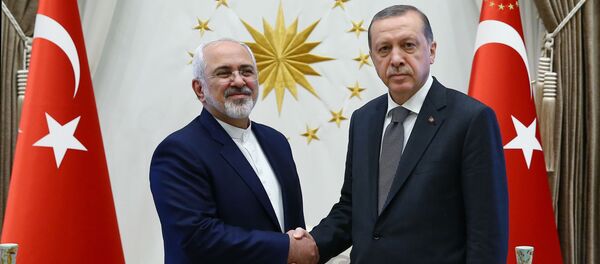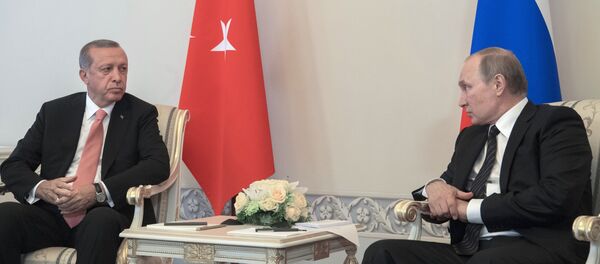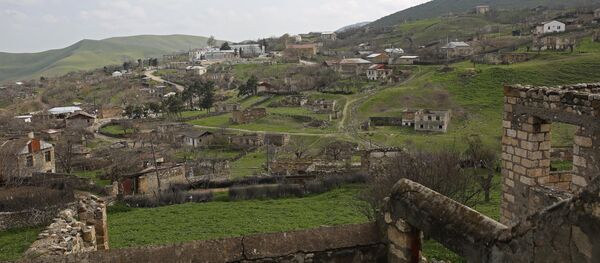On Tuesday, the Russian leader talked to Turkish President Recep Tayyip Erdogan in St. Petersburg.
The day after, in Moscow, he received Armenian President Serzh Sargsyan.
“Moscow confirms its intentions to become the leader of regional integration,” says the analysis on the recent diplomatic developments by the Armenia-based website FMG.news.
“The tendency towards the expansion of cooperation with Russia demonstrated by the South Caucasian countries is weakening the positions of the US in the region,” the website says.
“Washington’s strategy in the region recently largely pursues the aim of doing much harm to Russia and Iran. However the US itself offers nothing in return. The Americans are unable to satisfy the daily wants of the Caucasian states and substitute the real actions with diplomatic rhetoric, predominantly, as usual, with anti-Russian focus,” it adds.
The country has not been accepted in NATO, but the alliance preserves its military ties with the country for the further containment of Russia.
The US has plans to construct a naval military base for NATO member states in the Georgian port city of Poti. However, the website suggests, such plans will remain only on paper, as there are no member states that are eager to invest in this American project.
A similar situation can be seen between the US, NATO and Azerbaijan, the outlet notes. The logic of US diplomacy implies that it is enough to support the Turkish-Azeri alliance so that Ankara could pressure Baku in the interests of the West.
“Washington has evidently narrowed down its interest towards Azerbaijan, which absolutely corresponds with the general course of the Obama administration which has been carried away by isolationism and is trying to keep out of solving certain conflicts, including the one in Nagorno-Karabakh,” the website says,
American intelligence, it further suggests citing some reports, are eager to topple the government of Serzh Sargsyan to weaken Russia’s influence in the region.
“It is not quite by chance that the US is trying to play the Armenian card in its standoff with Russia,” the website says.
“The damage from the colored revolution in Armenia to the whole region could be colossal. And not only Moscow and Tehran are concerned about it. Turkey also fears the destabilization of the situation in Armenia,” it adds.
Nikolas K. Gvosdev, the incoming Jerome E. Levy Chair of Economic Geography and National Security at the US Naval War College, takes a similar position.
The three countries have agreed on the principle that maintaining the status quo in one country benefits the surrounding states — and that they ought to cooperate to prevent any sort of revolutionary changes from occurring, he wrote in his article for The National Interest magazine.
“Rouhani reportedly asked Putin to carry this message onward to his second meeting of the week, on the next day in St. Petersburg, where President Recep Tayyip Erdogan arrived to mend fences with Russia,” the author suggested.
“The Turkish president appears to still be rattled by the coup attempt against him last month, and he and his advisors seem inclined to believe that, even if the United States did not directly inspire the coup, Washington would have been happy to live with the results,” he explained.
With regards to the meeting between the Russian and Armenian presidents, Gvosdev suggested that “the Armenian leader, who has also faced internal unrest, got the same guarantees — that Moscow desires retention of the status quo.”
“Russia is making its bid to be the arbiter of the Black Sea basin. Putin's schedule of meetings this week sheds some light on Russia's priorities in the coming months,” he therefore suggested.
This view was echoed by FMG.news which notes that President Putin “however not a magician capable of instantly reconciling Armenia and Azerbaijan or making Turkey and Iran to shake each other’s hands on the Syrian battlefield, has been able to breath a new life into the relationship between the key players in the region.”
Which only means that Moscow confirms its intentions to become the leader of the regional integration, the website stated.
